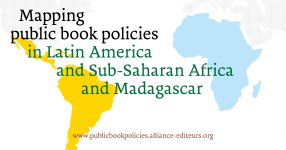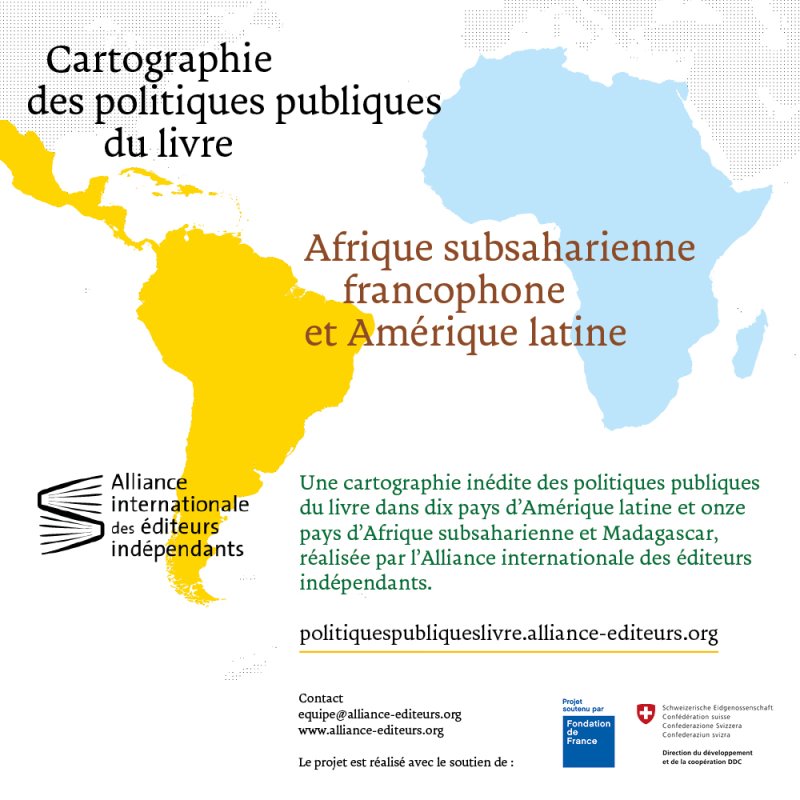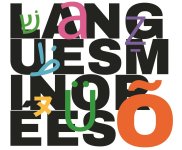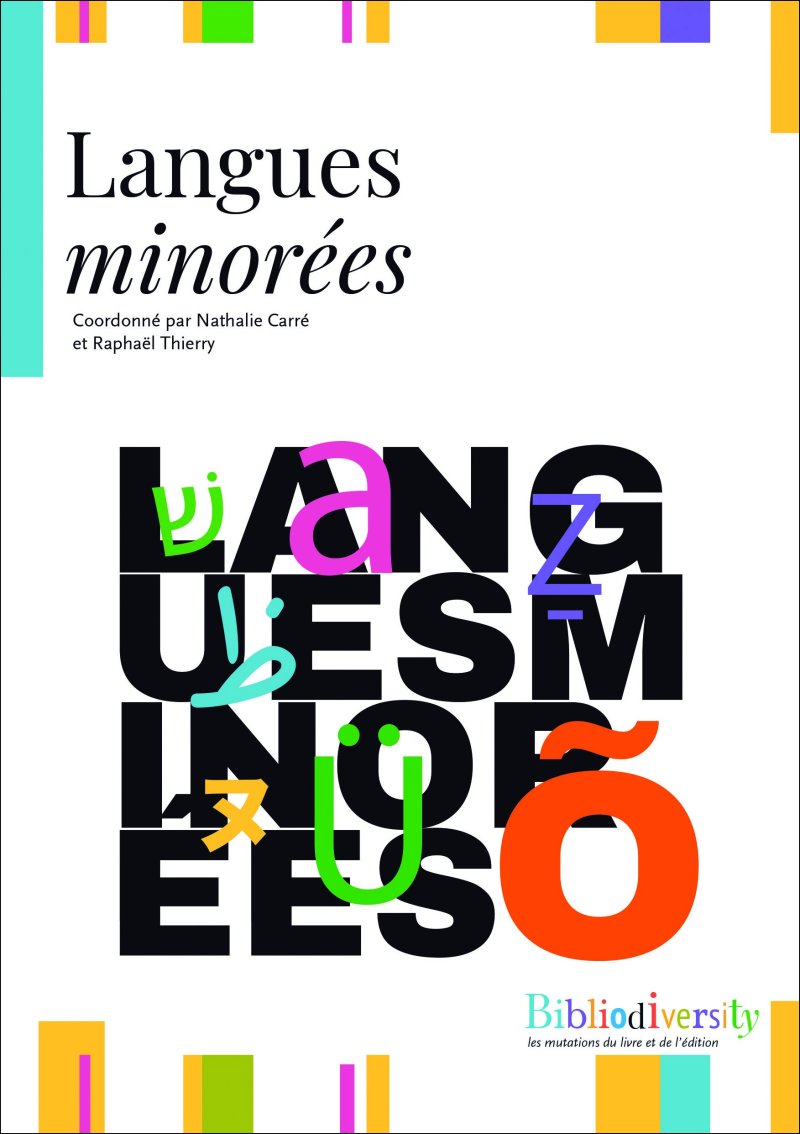Read: The sixth issue of Bibliodiversity, the newsletter of the Alliance of independent publishers, has just come out!
International network of 800 publishers in the world in favor of bibliodiversity
Read: The sixth issue of Bibliodiversity, the newsletter of the Alliance of independent publishers, has just come out!
Publishing countries : Brazil
In Brazil, the “Springtime of books”, an event organized
by the LIBRE organization (a Brazilian federation of publishers), was the occasion to discuss a law regulating the price of books. Approximately a hundred independent Brazilian publishers participated in this great celebration of books, from September 15-17, 2006.
Upon the publication of the Portuguese version of Protéger le livre (“Protecting books”) - a study published in 2003 by the
Alliance of Independent Publishers, Markus Gerlach, author of the study, accompanied by an economist and president of LIBRE, Araken Ribeiro, participated in an in-depth debate on setting fixed prices for books. Proteger o livro is the first co-publishing project between LIBRE and the Alliance of Independent Publishers. We are particularly pleased that Markus Gerlach’s work exists, in addition to the French and Spanish versions, in Portuguese.
Remaining active, the LIBRE organization organized a round table discussion focused on “Proposals and commitments made by Presidential candidates”, with the participation of several representatives of candidates from the principal parties involved in the Brazilian Presidential campaign.
As we can see, the establishment or the rejection of a law on books and readership makes for some serious debate,
particularly in Latin America.
(More info on: http://www.primaveradolivro.com.br/).
Read: The fifth issue of Bibliodiversity, the newsletter of the Alliance of independent publishers, has just come out!
The role played by books in spreading ideas, analyses, imaginary scapes and proposals, in educating and informing citizens, is essential to understand the challenges of our times, to know oneself and others. Read what follows (in French)
Read: The fourth issue of Bibliodiversity, the newsletter of the Alliance of independent publishers, has just come out!
Read: The third issue of Bibliodiversity, the newsletter of the Alliance of independent publishers, has just come out!
Publishing countries : France
The Alliance of the Independent Publishers cordially thanks all the people who contributed to the success of our collective stand at the Paris Book Fair.
Read: The second issue of Bibliodiversity, the newsletter of the Alliance of independent publishers, has just come out!
Read: The first number of Bibliodiversity the newsletter of the Alliance of independent publishers has just come out!
Publishing countries : Mexico

November 2005, 27-30
International Book Fair of Guadalajara, Mexico

Cross-sectional analysis of data collected in 12 countries, by Luc Pinhas, University of Paris 13 Villetaneuse (France)
In a comprehensive cross-sectional study that enriches our knowledge of public book policies in French-speaking sub-Saharan Africa, Luc Pinhas discusses the similarities and differences that exist between 12 countries in the region. While some very interesting developments for local book production and the local book chain should be acknowledged – cf. the preference given to local actors by the Ivorian law of 2015 – the legislative and regulatory frameworks would certainly benefit from being strengthened to support and strengthen the local book economy.
Contents:
This analysis is to be found in a special issue of the Bibliodiversity Journal on “Public book policies” available in paper and digital versions (in French).
See also the analysis on “Public book policies in Latin America”, published in September 2019.
To complement these analyses, see the mapping of public policies and in-country support mechanisms here: publicbookpolicies.alliance-editeurs.org
Data collection in the 11 countries of sub-Saharan Africa and Madagascar as well as in Latin America, cross-sectional data analyses and online mapping were supported by the Fondation de France and the SDC Switzerland.
References:
The myth of the ‘book famine’ in African publishing, Review of African Political Economy
DOI : 10.1080/03056244.2020.1792872
Elizabeth le Roux (2020)
Abstract:
The publishing industry in Africa is usually described in terms of ‘booklessness’, ‘hunger’ or ‘famine’. But does this language of scarcity reflect the realities of book production and consumption? In this paper, the concept of ‘book famine’ is analysed as a central frame of discourse on African books, using a survey of existing documentation. Two ways of responding to book famine – provision and production – are identified, and the shortcomings of book aid (provision) are contrasted with strengthening local publishing industries (production). It is argued that the concept has become a cliché that is no longer relevant and that African publishing, while variable, is responding to local needs.
“Être éditeur au Maroc : la pensée au triple défi du marché, du droit et des libertés” / “To be a publisher in Marocco”
Kenza Sefrioui (En toutes lettres, Marocco)
In Morocco, it is very difficult to be a publisher, due to the conjunction between the lack of economical development of the sector and a long history of hostility of the authorities toward intellectuals, which destructured the fields of knowledge and culture. En toutes lettres’s experience, a young independent publishing house based in Casablanca and specialized in narrative journalism and humanities, proves the need to take the triple challenge of market, law and freedoms, and to invent new forms of solidarity between publishing, press, research and civil society, in order to rebuild a pole of production of critical thinking.
Read here the article (in French).
RELIEF – Revue électronique de littérature française 14 (1), 2020, p. 32-48
DOI : doi.org/10.18352/relief.1065
ISSN : 1873-5045 – URL : www.revue-relief.org
Download the report produced by APNET (African Publishers Network) in April 2020.
“Francophone African books are still very often published by French imprints, which can make them hard to get at home. But there is a growing push for change...
When Cameroonian author Daniel Alain Nsegbe first saw his debut novel for sale in his home city of Douala, the price was so high “you would have to ask someone to stop eating for two days in order to buy the book”. It was around 16,000 CFA francs (£20); the average monthly salary in Douala is £150. The book, Ceux qui sortent dans la nuit (Those Who Go Out at Night) was published by Grasset, a French imprint. [...]”
Read here the article by Olivia Snaije, published in The Guardian, 14 May 2020.

An unprecedented mapping of policies supporting reading and books in 22 countries, which can be consulted and downloaded online: publicbookpolicies.alliance-editeurs.org
Arising from the observation of the lack of data on public book policies in regions where the member publishers of the Alliance operate, particularly in Latin America and sub-Saharan Africa, the public book policy mapping project is the result of several years of collaboration between book and publishing professionals, academics and experts on public book policies. It relies first and foremost on the investment and involvement of the Alliance’s member publishers, who are its primary actors. It is one of the flagship projects of the Bibliodiversity Observatory.
The mapping proposes several items: one entry per country (country fact sheets listing existing mechanisms for public support for books at the national level); a regional entry (comparative data through cross-cutting analyses). It is interactive and evolving: the fact sheets presenting the institutions and national public book policies can be amended and modified as the systems evolve. This mapping is thus intended to be extended to new countries in both regions, or even to integrate a new region in the long term (the Arab world in particular). For now, the mapping exists only in Spanish and French for lack of financial means to carry out a translation into English. The Alliance hopes to find the necessary funds to translate the mapping into English soon.
The objectives of the mapping are to:
• make available data on the public book policies of the respective countries;
• offer an overview of public book policies, freely accessible, consultable and reusable by professionals and public authorities;
• promote dialogue and exchanges between public authorities and publishers;
• develop advocacy tools for independent publishers;
• contribute to the establishment and consolidation of public book policies in developing countries (among others, for a greater circulation of books and ideas, for the appropriation of digital tools by book professionals, for balanced exchanges between North and South);
• affirm the role of civil society (book professionals and particularly independent publishers) in the development and implementation of public book policies.

The Alliance warmly thanks the partners of this project: the Fondation de France and the Swiss SDC.
See the complementary issue of the Bibliodiversity journal “Public book policies”.
Press release
If you have any questions, please do not hesitate to contact the Alliance team at: equipe@alliance-editeurs.org
Publishing & the Book in Africa: A Literature Review for 2019
The fifth in a series of annual reviews of select new literature in English that has appeared on the topic of publishing and the book sector in sub-Saharan Africa. Extensively and critically annotated and/or with abstracts, the present list brings together new literature published during the course of 2019, a total of 156 records.
Read the pre-print version here.
The final print/online version to be published in The African Book Publishing Record, vol. 45, issue 2 (May 2020).
Reprinted with permission of the author.
Copyright © Hans Zell Publishing Consultants 2019
This chronological timeline sets out some of the key dates, events, and landmarks in the history and development of indigenous publishing in Sub-Saharan Africa. It also includes details of the major conferences, meetings or seminars on African publishing, held in Africa or at venues elsewhere, since 1968. An earlier version of this chronology first appeared in The African Publishing Companion: A Resource Guide, and has now been updated through to the period up to 2019, and considerably expanded to also include publication of a number of benchmark studies, conference proceedings, journals, and reference resources on the African book world.
Read here the pre-print version on Academia.edu, 21 October 2019.
Final version, to be published in African Research & Documentation. Journal of SCOLMA (The UK Libraries and Archives Group on Africa), no. 136 (2019)
Reprinted with permission of the author.
Copyright © Hans Zell Publishing Consultants 2019

“Minority languages”, the new issue of the Bibliodiversity journal, coordinated by Nathalie Carré (Institut National des Langues et Civilisations Orientales, Inalco) and Raphaël Thierry (independent researcher)
Contact the Alliance team to get a free digital version of this issue.

Bibliodiversity is co-published by Double ponctuation and the International Alliance of Independent Publishers.
See all the other issues of the journal here (“Public book policies”, “Self-publishing”, “Publishing and commitment”, “Translation and Globalization”...)
Presentation
More than half of the languages spoken in the world are in danger of disappearing; if nothing is done, UNESCO estimates that 90% of languages will have disappeared in the course of this century. Languages are an essential part of a people’s culture, yet they are much more than just a tool for communication; they offer a unique view of the world and of the people who live in it. What can the publishing sector do – and is already doing – to help preserve and sustain these minority languages? This book attempts to answer this question through academic articles and testimonies of book professionals who, together, propose a novel approach to the subject.
In the light of their publications, the book analyses the situation of several minority languages - Haitian Creole, Corsican, Innu, Yiddish, Kikuyu, Basque, Malagasy, Náhuatl, etc. and shows that solutions are possible when the actors in the book system are mobilised.
Summary:
These recommendations and proposals are taken from the 80 recommendations & tools in support of bibliodiversity; they are built on the principles upheld in the 2014 International Declaration of independent publishers.
These recommendations are based on the experiences and practices of the International Alliance of independent publishers: they mainly focus on publishing partnerships between publishers from the South, given that support for publishing in these countries is often weak or inexistent, and between publishers of the South and North, given that these exchanges are few.
International Alliance
of Independent Publishers
38 rue Saint-Sabin
75011 Paris - France

